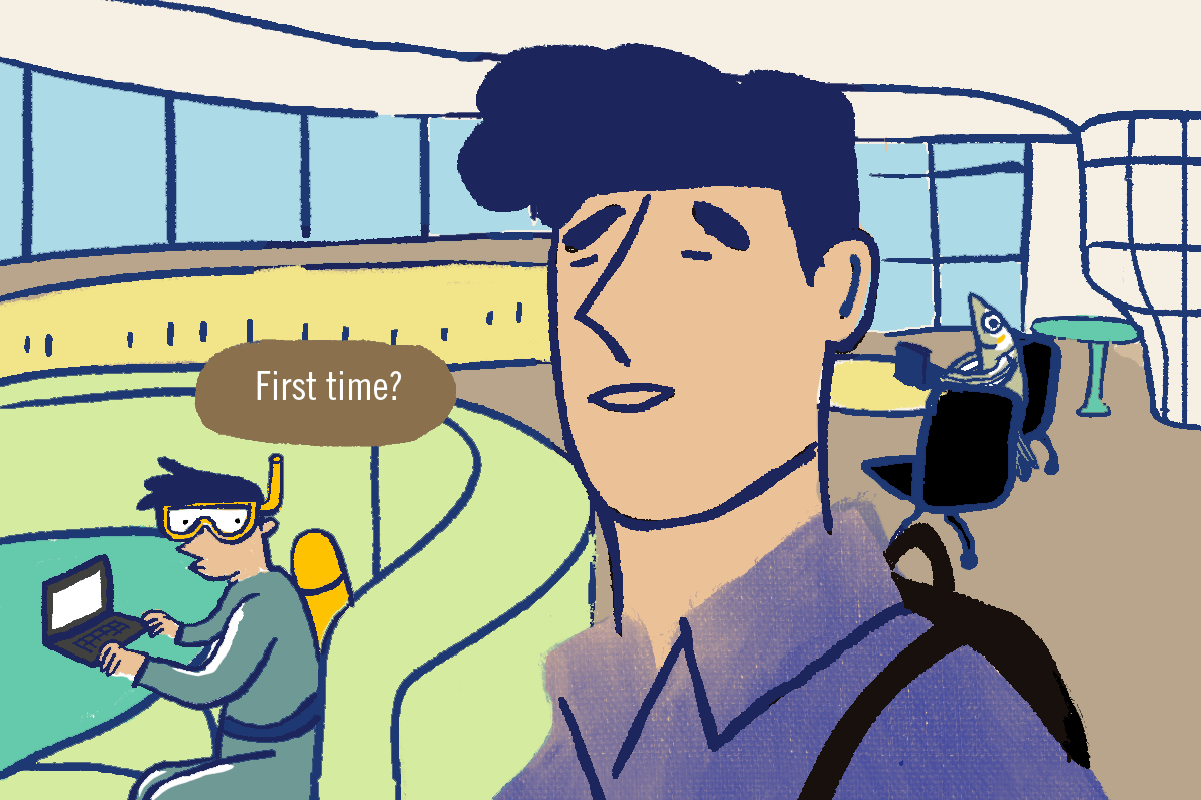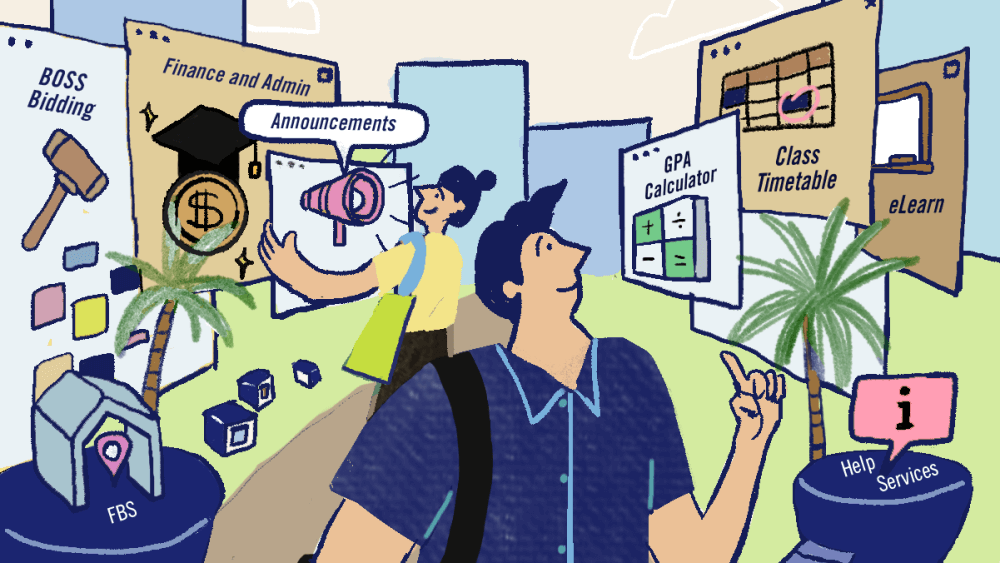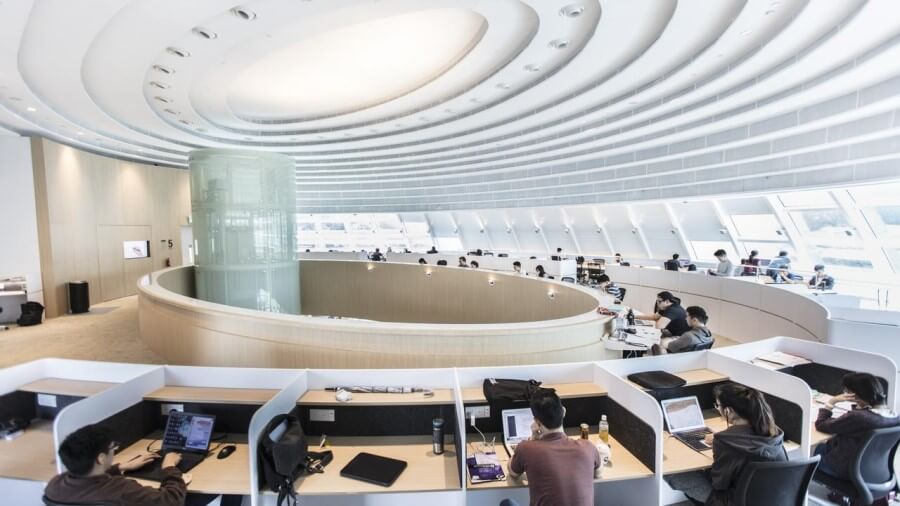
Freshman year in SMU is an exciting time in your life. You’re making new friends from all walks of life, you’re exploring modules that interest you, and you’re making the most of all this new-found freedom to plan your day.
But it can get a little overwhelming too. You’re most likely developing a fear of adulting. You’re beginning to understand the value of time management, or the consequences of not knowing the value of time management. On top of it all, you’re struggling to understand the linguistic idiosyncrasies (time to use some big words now that you’re in university) of the seniors around you.
Why do we have to add our courses to a cart? How can we study in a tank meant for fish? Who in the world is a faci? It will all make sense in due time. Here’s a survival guide to commonly used lingos on the SMU campus you never knew you needed; you’ll thank me later!
Schools

Let’s start with the basics. At SMU, the names of our six faculties are all a bit of a mouthful. So, your seniors and Professors will conveniently use shortened versions of the schools’ official titles:
- SOB for Lee Kong Chian School of Business
- YPHSL for Yong Pung How School of Law
- SCIS for School of Computing and Information Systems
- SOA for School of Accountancy
- SOSS for School of Social Sciences
- SOE for School of Economics
You can make use of these acronyms to introduce yourself in classes or to help you find your way around campus.
People

The hallmark of the SMU Freshman experience is the array of freshmen camps that you get to attend before classes officially begin. When you attend these camps, you will be introduced to your facis. These SMU seniors are your facilitators throughout the duration of the camp and are present to help you smoothly transition into university life. Do get to know them, because there’s so much to learn from their personal experiences in SMU.
On your way to becoming a blossoming SMUgger (a play on the word “mugger”), you’ll also get to meet Teaching Assistants, or TAs for short, in each one of your modules. On top of being your mentor for a specific course, their main role is to help lighten your Profs’ (Professors’) admin load.
Activities
One of the things that make SMU stand out among other local universities is the 80 hours of community service that all undergraduates are expected to complete before graduation. There are plenty of local and overseas community service projects – known as CSPs (local) and OCSPs (overseas) – that you can take part in. These are perfect opportunities to give back to the community while meeting new people in school. You can look out for ways to sign up for CSPs/OCSPs through your school email!
Digital tools

No 21st century learning experience is complete without digital resources. To complement your learning here in SMU, you would be able to leverage some amazing online tools.
First thing’s first: BOSS. No, it’s not someone you have to report to but a platform (Bidding Online SyStem) every SMU student has to use to bid for the upcoming semester’s modules beyond the first semester. It might seem like a pretty straightforward process, but it’s really nuanced. Here are some tips and tricks to help you ace the BOSS bidding process.
And BOSS is just one of the many services available on OASIS – or Online Access to Student Information System – which is a site you’ll definitely want to bookmark because this one-stop intranet portal provides you with access to e-services and all the basic resources you will need as an SMU student.
On top of BOSS, there are two other notable services on the portal that you will be using very often: eLearn and The Facility Booking System. eLearn is the official online-learning platform used in SMU, through which you can access course materials uploaded by your Professors, view your grades, attempt quizzes, submit assignments and projects, and peer-evaluate your project group members.
The Facility Booking System, or FBS, on the other hand, allows you to book rooms all over the campus. “Book rooms? For what?” – I hear your incredulous questioning, which brings us to my next point.
Locations and study spots

Finding the sweet study spot in school is part of the process of evolving into a true blue SMUgger.
If you enjoy peace and quiet, the SMU Libraries just might be your cup of tea. Commonly referred to as LKS (Li Ka Shing Library, located opposite SCIS/SOA) and KGC (Kwa Geok Choo Law Library, located at Level 3 of YPHSL), The Libraries are central to SMU’s city campus and contribute to the research, teaching, and learning needs of the SMU community. If you decide to study at LKS, you can snag a seat that could get you a view of SMU’s beautiful astro-turf at Campus Green. Alternatively, check out the lush greenery at Fort Canning Park from KGC.
But what if the silence is too loud for you? Some of these locations might suit your needs a little bit better: Located at both the first level and the basement of SOE/SOSS, Fish Tanks are study areas with glassy, round interiors (hence, the name) that are good for both studying and project discussions. Similarly, GSRs (Group Study Rooms), CRs (Class Rooms), PRs (Project Rooms) or SRs (Seminar Rooms) are great if you like some privacy. These rooms are also more commonly used for group project discussions and can be booked two weeks in advance. The demand for them is high, so remember to book them early!
You’re welcome, soon-to-be SMUgger. While this may look like a long list of acronyms to commit to memory, rest assured they’ll be rolling off your tongues in a month or two. You might encounter other terms along the way, and when you do, don’t be afraid to ask your friendly seniors!

